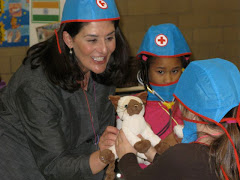Ira Shor – Empowering Education
1. “All forms of education are political because they can enable or inhibit the questioning habits of students, thus developing or disabling their critical relation to knowledge, schooling and society. Education can socialize students into critical thought or into dependence on authority…” (p 13)
This reminded me of our readings a couple weeks ago, Anyon and Oakes. If you have the education that inhibits questioning and disables the critical relation to knowledge etc…you become dependant on authority. If you have an education that enables questioning and develops critical thinking and knowledge you will be socialized. Delpit is alive and well in this reading also. Presenting the benefits of a democratic, student centered, multicultural classroom. Which I believe Delpit would want over needing to teach the codes of power because society dictates it.
2. “Politics reside not only in subject matter but in the discourse of the classroom; in the way teachers and students speak to each other. The rules for talking are a key mechanism for empowering or disempowering students. How much open discussion is there in class? How much one-way “teacher-talk?” (p 14)
I understand the classroom they are presenting in this reading and it sounds wonderful and I can see many of the recommendations working. I personally would have had trouble in grade school in disagreeing with my teacher as it states in this article. It’s a matter of respect and confidence at that age no matter how much “empowering” I was given. I have difficulty with it now. There are also people that are more competitive or assertive than others and those that just don’t care to participate as much. The management of the classroom in elementary school seems odd to me and this reading provided plenty of examples.
3. “Education is more than facts and skills. It is a socializing experience that helps make the people who make society.” (p 15)
I certainly agree with this statement. Students are certainly in school to gain knowledge but more importantly with that knowledge comes the learning of social skills. Students are learning to work together with others. This reading certainly goes much further to state that it is the schools responsibility to provide students an education that develops them into “critical citizens who can think, challenge, take risks, and believe that their actions will make a difference in the larger society”
This reading reminded me a lot of Anyon and Oakes in comparing curriculums and discussing teacher directed / lecture style classrooms to the student-teacher centered style of Empowerment and participation and critical thinking classrooms. It was very long and gave more than enough examples of problem-posting - I get it already. I agree with the whole concept and many of the ideas in this reading. Participation is important to knowledge and encourages achievement, creating positive relationships between feelings and thoughts increases learning, problem posting presents subject matter as questions to be discussed and analyzed not knowledge to be memorized. It sounds good. I just can’t imagine the time in elementary or grade school that this type of teaching would take. I found a cool student democratic web-site you can check out, includes lots of info - great quotes.
Monday, April 26, 2010
Subscribe to:
Post Comments (Atom)

1 comment:
I liked your second point. My best friend was that girl in school that always argued with the teacher haha.
Post a Comment